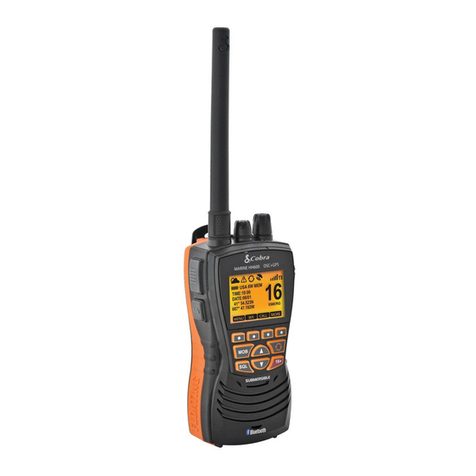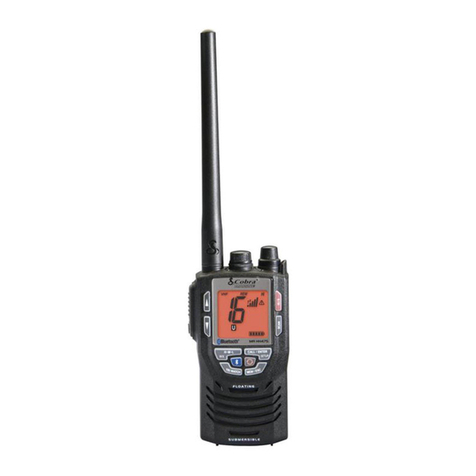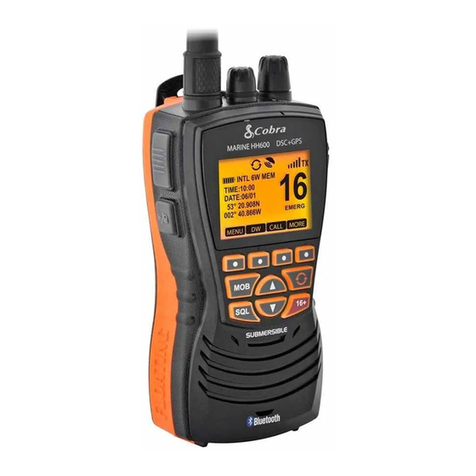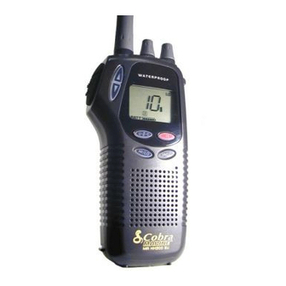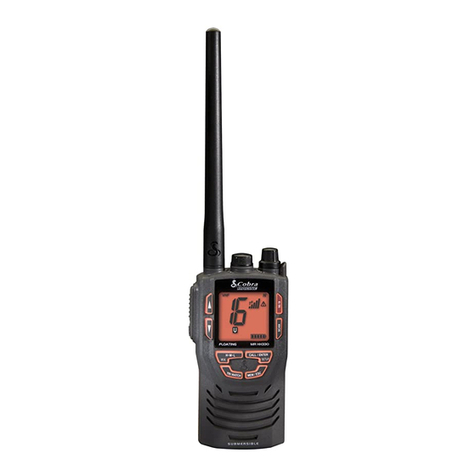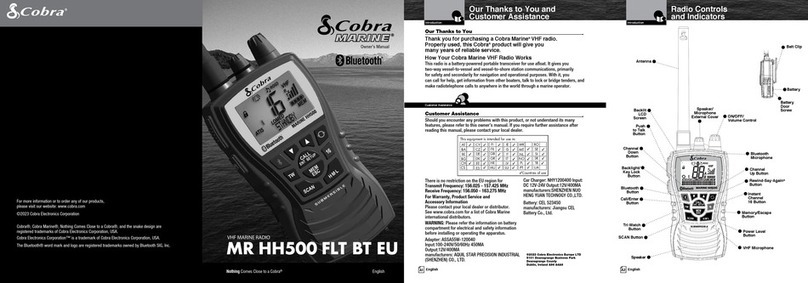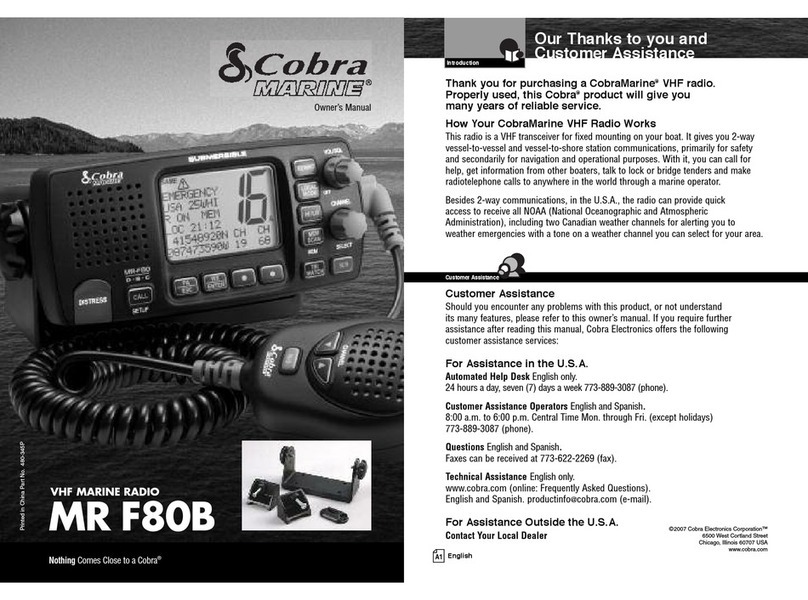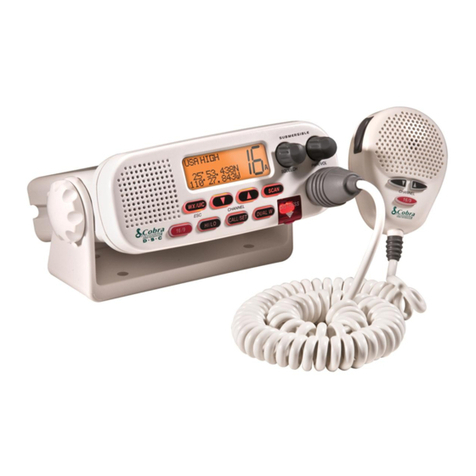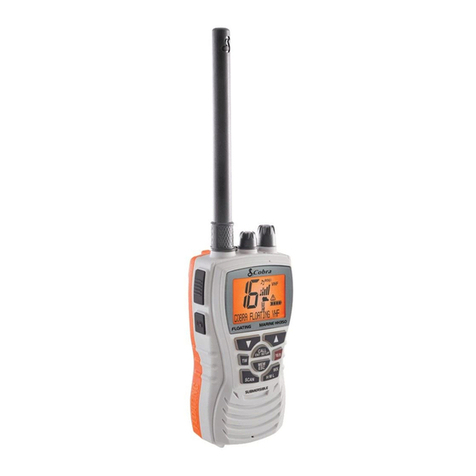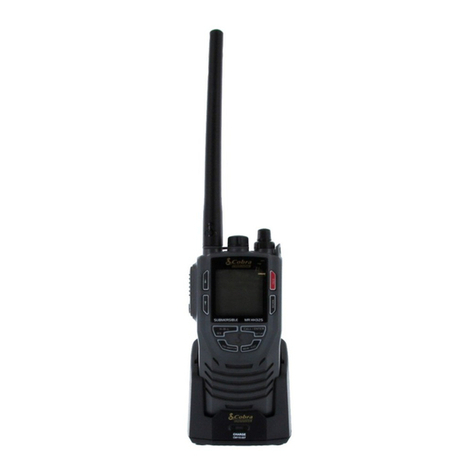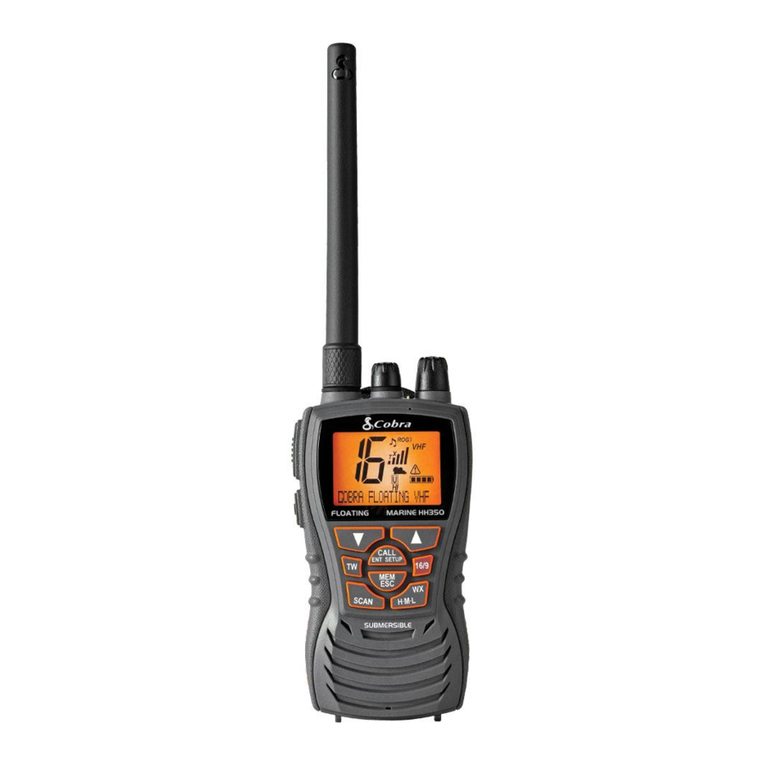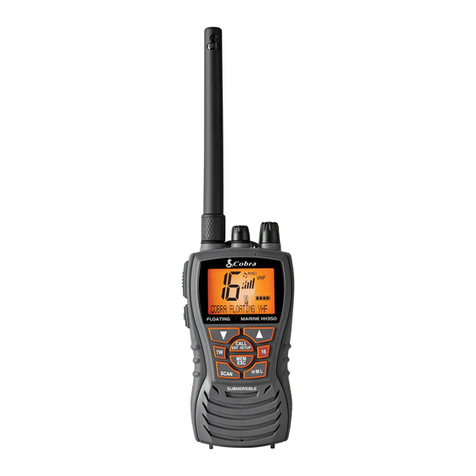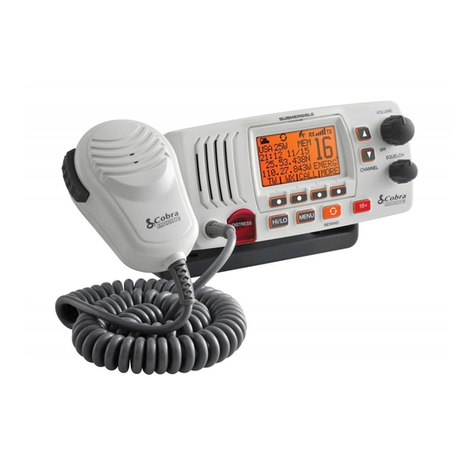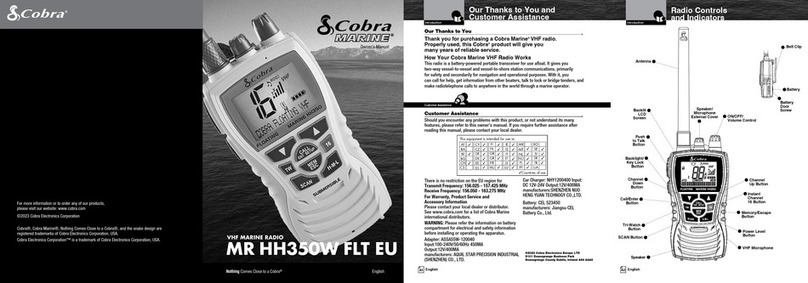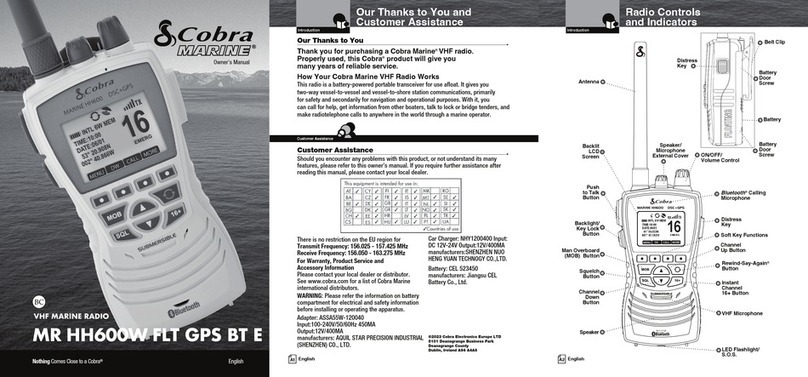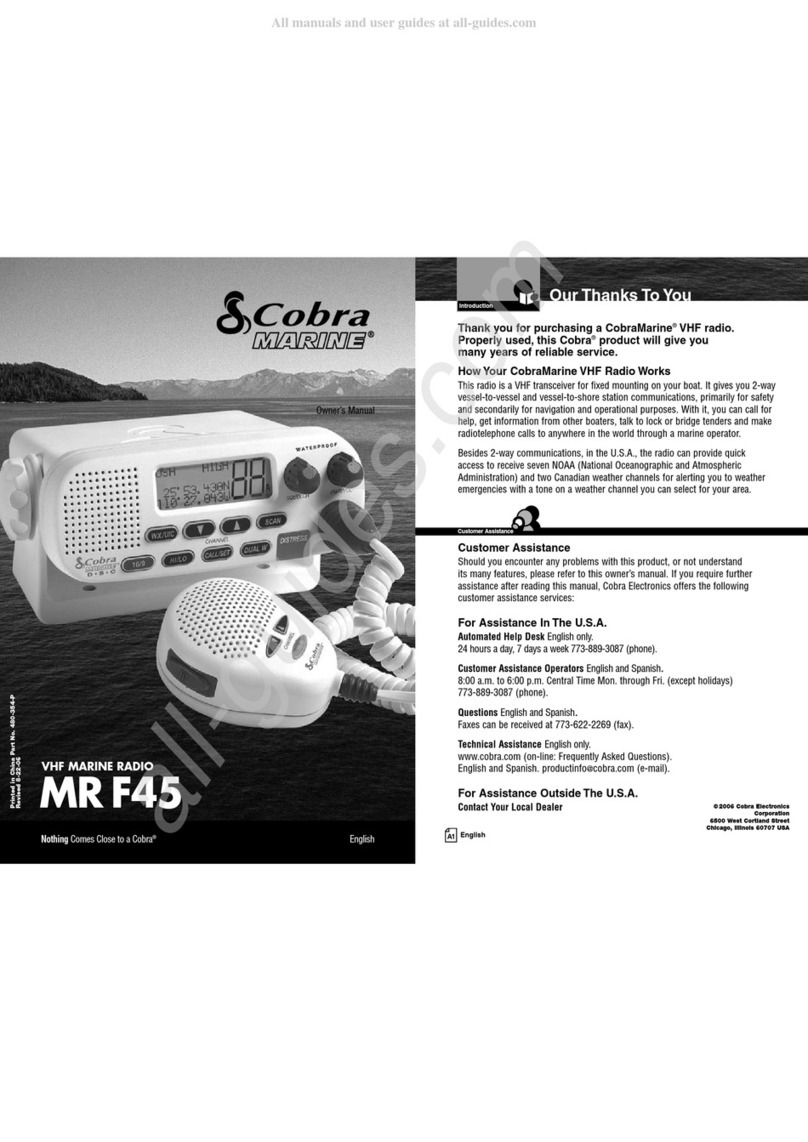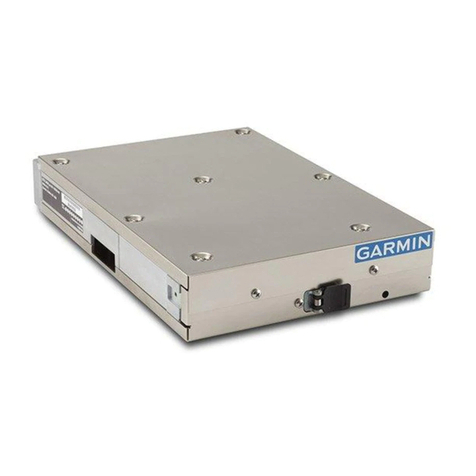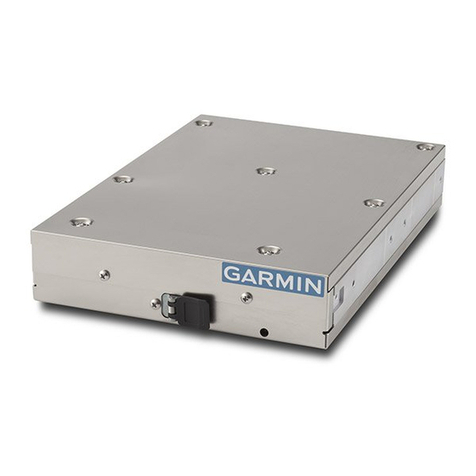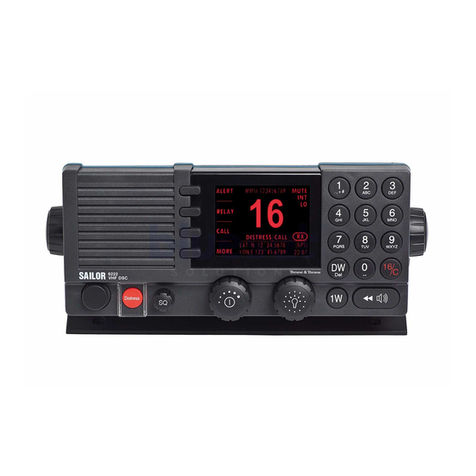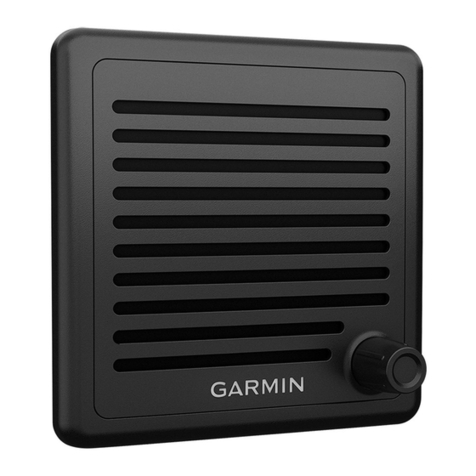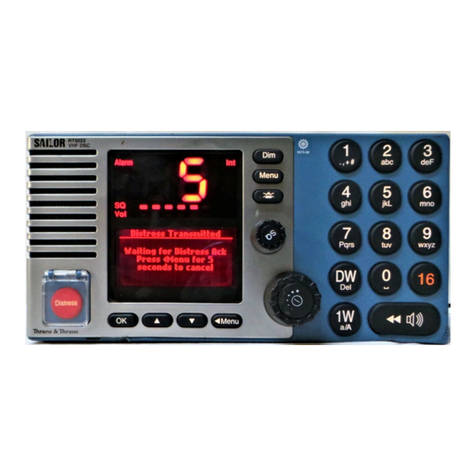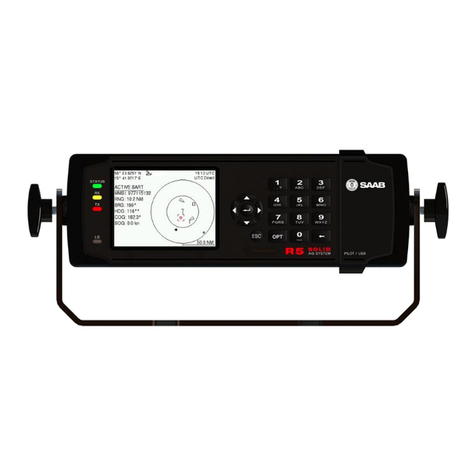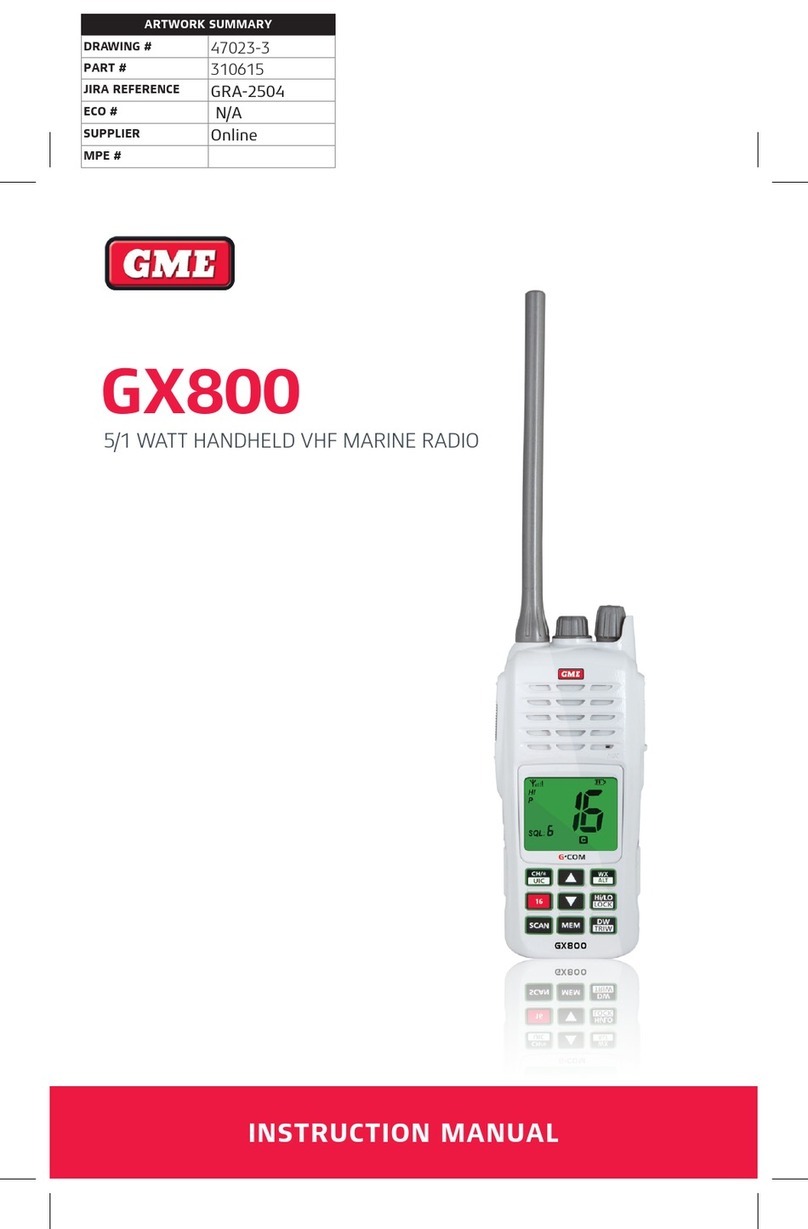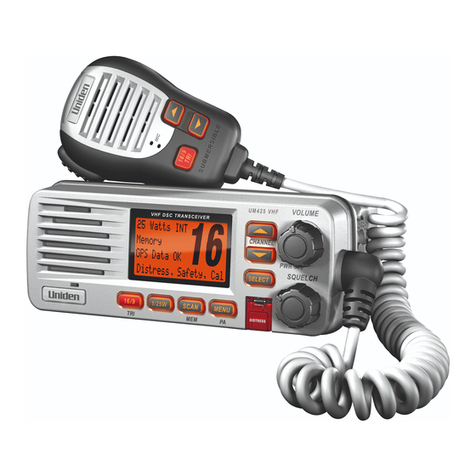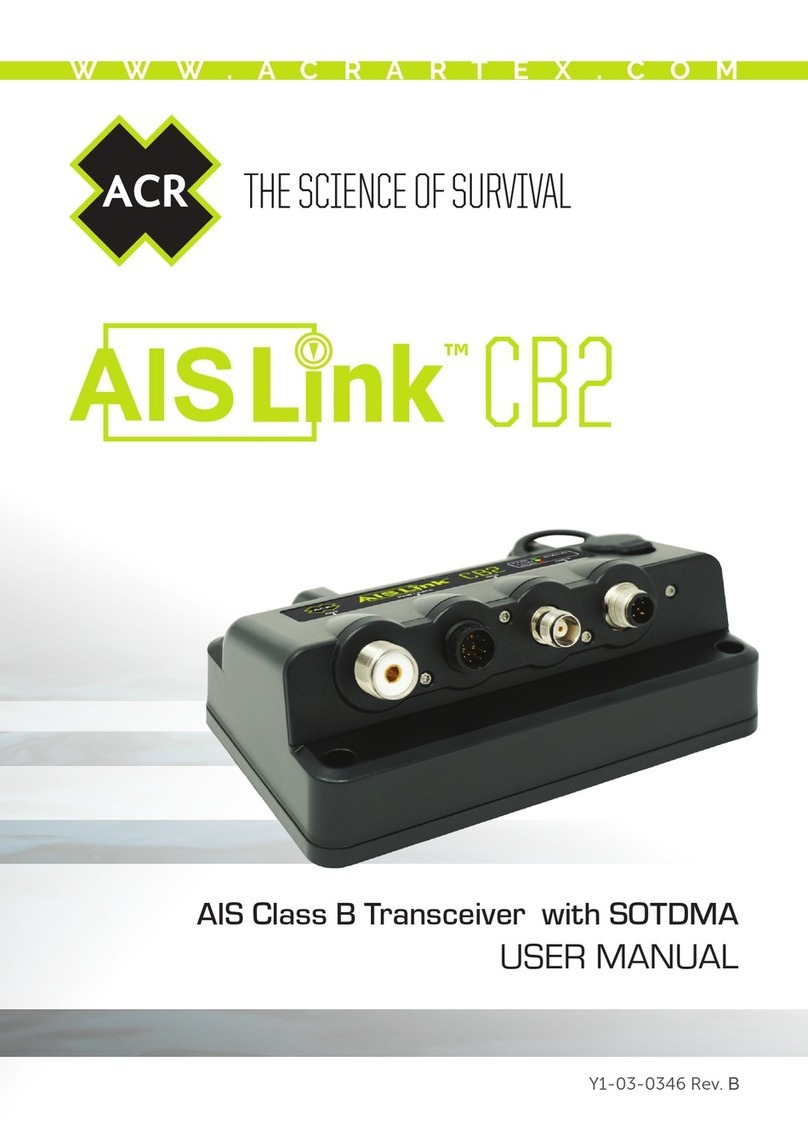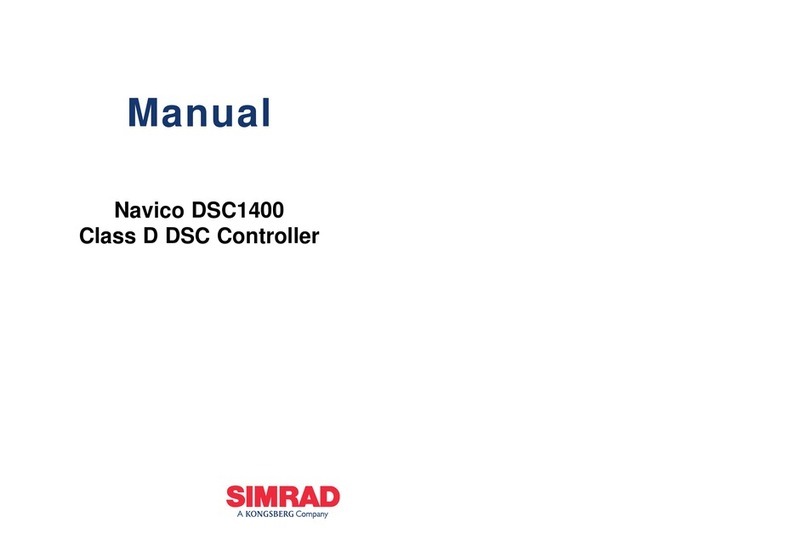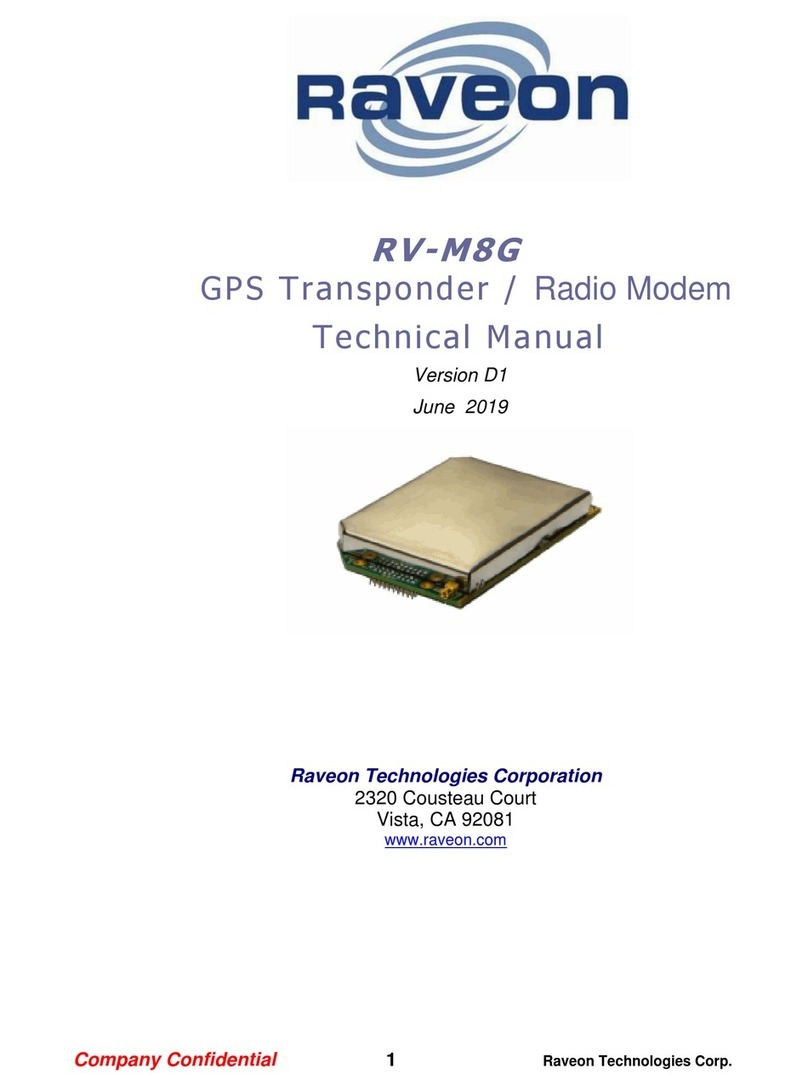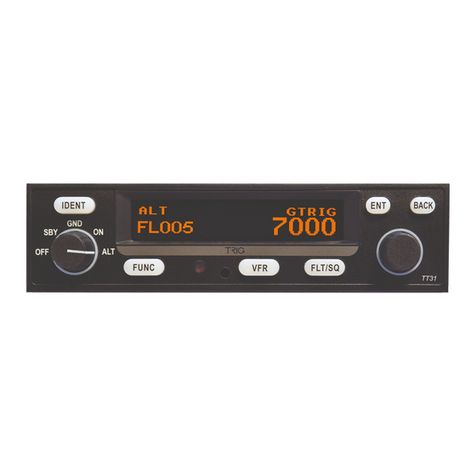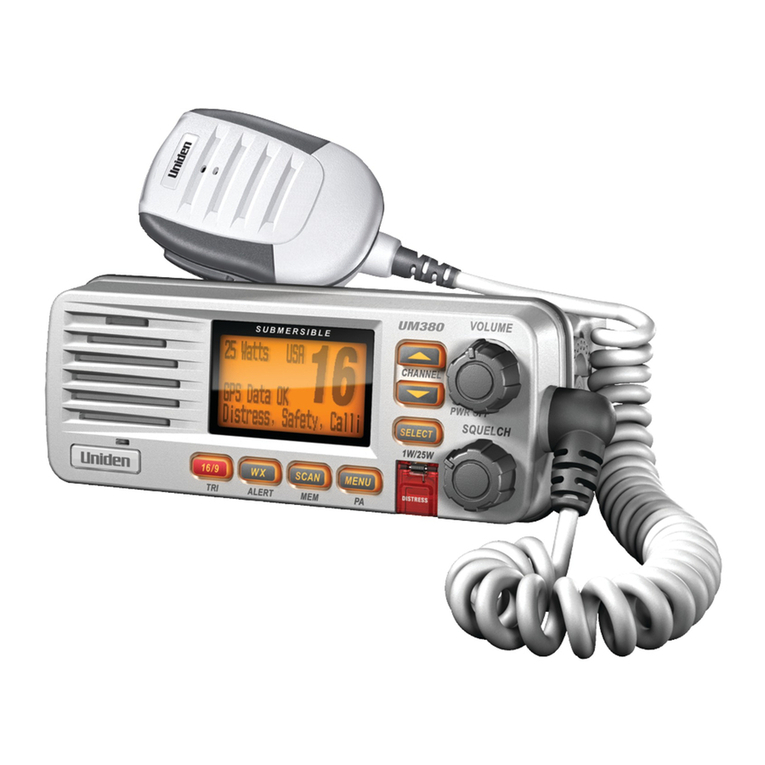
Introduction
5
Nothing Comes Close to a Cobra®
FCC Licensing Information
Sea Tow Automated Radio Check (ARC) System
Please try the Sea Tow Automated Radio Check service. Areas where the safety check service
is available include the East Coast, Gulf of Mexico, Southern California, and select inland
locations including the Great Lakes. The rst and only boating safety program of its kind, the
Sea Tow Automated Radio Check service is fully automated and allows 24 hour a day automated
responses to radio check calls.
Conducting a radio check through the Sea Tow Automated Radio Check service couldn’t be
simpler. All boaters need to do is tune their VHF radio to Channel 24, 25, 26, 27, 28 or 84
(channel varies by location), then key the mic and ask for a radio check. The system responds
to each radio check with an automated reply including the location, and also replays the boater’s
original radio transmission, allowing them to assess the strength of the signal and conrm the
VHF radio is in good working order.
To nd the Sea Tow Automated Radio Check service channel in an area boaters, radio owners
should visit www.seatow.com/arc. The web page allows you to search for the local channel and
has an instructional video on how to use the service step by step.
FCC Licensing Information •
CobraMarine VHF radios comply with the FCC (Federal Communications Commission)
requirements that regulate the Maritime Radio Service.
This CobraMarine radio incorporates a VHF FM transceiver designed for use in the frequency
range of 156.025 to 163.275 MHz. It has a switchable RF output power of one (1), three (3)
or six (6) watts.
The transceiver is capable of Class-D (Digital Selective Calling) operation in accordance with
CFR Part 47, Section 80,225.
The radio operates on all currently allocated marine channels and is switchable for use
according to U.S.A., International or Canadian regulations. It features instant access to
emergency Channel 16 and calling Channel 9 as well as NOAA (National Oceanic and
Atmospheric Administration) All Hazards Radio with Alert.
Station License
An FCC ship station license is no longer required for any vessel traveling in U.S.A. waters which
uses a VHF marine radio, RADAR, or EPIRB (Emergency Position Indicating Radio Beacon), and
which is not required to carry radio equipment. However, any vessel required to carry a marine
radio on an international voyage, carrying an HF single side band radiotelephone, or carrying a
marine satellite terminal must obtain a station license.
FCC license forms and applications for ship and land stations can be downloaded through the
Internet at www.fcc.gov. Forms can also be obtained by calling the FCC at 888-225-5322.
International Station License
If your vessel will be entering the sovereign waters of a country other than the U.S.A. or Canada,
you should contact that country’s communications regulatory authority for licensing information.
Radio Call Sign
Currently, the FCC does not require recreational boaters to have a license. The United States
Coast Guard recommends that the boat’s registration number and state of registry (e.g., IL 1234
AB) be used as a call sign and be clearly visible on the vessel.

